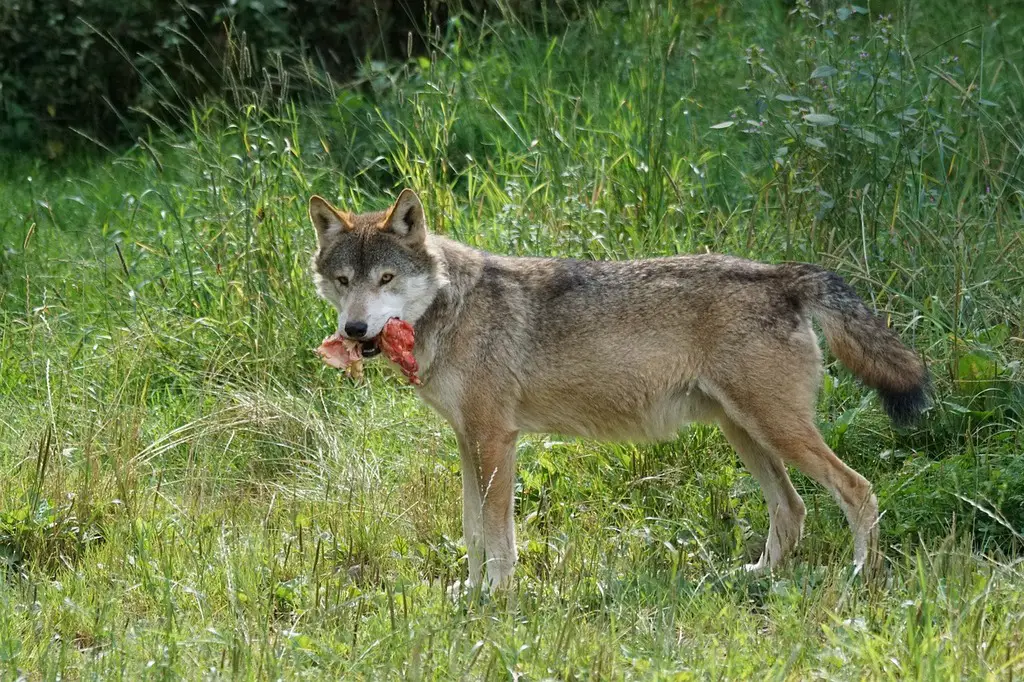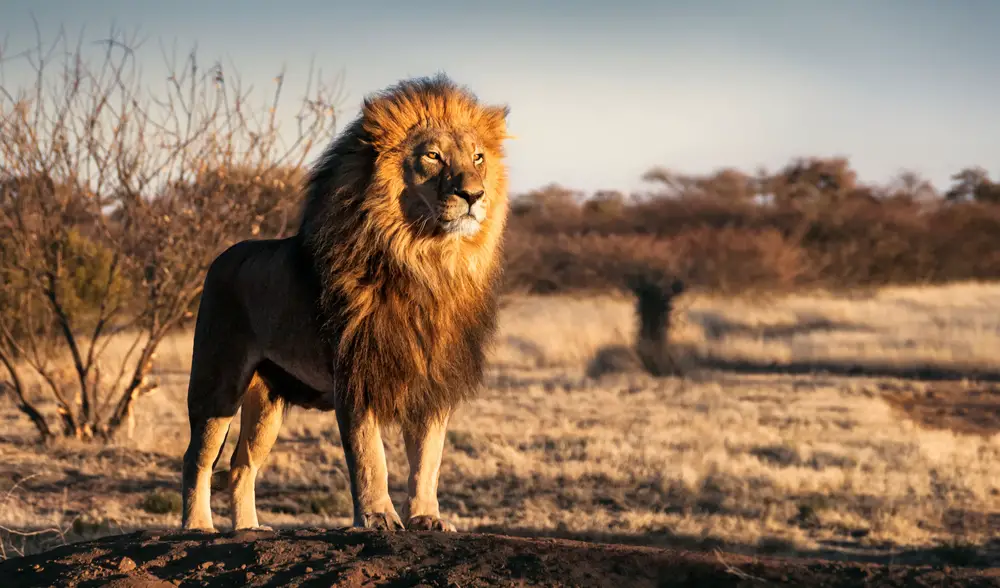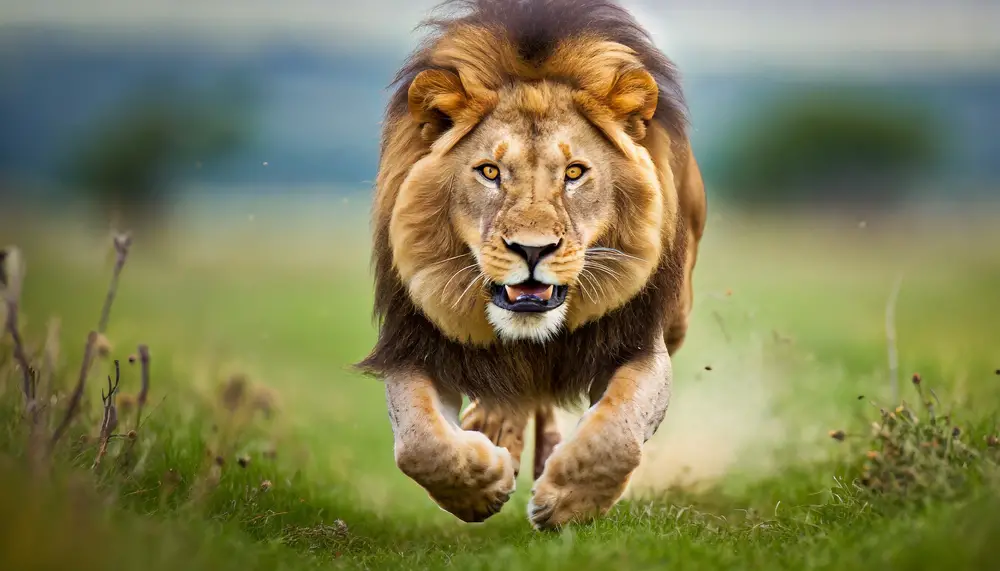In the intricate dance of human interaction, not everyone plays by the same rules. Enter the sociopath—those mysterious figures who navigate the world with the detached precision of an apex predator. Just like the stealthy lion or the cunning wolf, sociopaths possess a blend of traits that allow them to stalk, manipulate, and conquer their prey. Let’s explore the uncanny parallels between these enigmatic individuals and the wild predators we both fear and revere.
1. Calculated Charm

Both sociopaths and animal predators possess an uncanny ability to charm and disarm. When a predator approaches its prey, it often does so with a deceptive air of calm, much like the sociopath who uses charisma as a tool of manipulation. According to Dr. Robert Hare, an expert on psychopathy, sociopaths often exhibit a superficial charm that they wield to gain trust and access, much like a predator silently drawing closer to its target. This charm is a facade, a tactical move to get what they want without raising alarms.
However, unlike the genuine warmth of a trusted friend, this charm is a means to an end. It’s a calculated effort to put others at ease, to lower their defenses, and to gain the upper hand. Animal predators might use their allure to approach unsuspecting prey, while sociopaths use their charm to navigate social structures. It’s a cold, strategic game, and the stakes for those who encounter such individuals can be perilously high.
2. Keen Observation Skills

Sociopaths and predators alike are masters of keen observation, attentively tuning into their environment for any signs of opportunity. They notice the subtle shifts in behavior, the slightest hesitation, and the unspoken cues that others might overlook. This vigilance allows them to remain one step ahead, assessing vulnerabilities and calculating their next move with precision. Just like a hawk scanning the ground from above, they miss nothing.
This ability to observe with laser focus is often mistaken for empathy or interest, but it’s neither. It’s a predatory instinct, a means to an end that serves their personal agenda. Sociopaths use this skill to scan social environments, identifying the weak spots in others’ defenses. This meticulous observation is their weapon, giving them the upper hand in the social jungle.
3. Emotional Detachment

In the wild, a predator cannot afford to sympathize with its prey, and the same goes for sociopaths. Their emotional detachment allows them to make decisions that are brutally pragmatic, unclouded by feelings of guilt or empathy. This trait is part of what makes sociopaths so dangerous; they can commit acts of deceit and betrayal without the burden of conscience. According to psychologist Martha Stout, sociopaths lack the internal emotional infrastructure that inhibits most people from harmful actions.
This absence of emotional engagement can be chilling to those who experience it firsthand. While most people are guided by a moral compass that tugs at their conscience, sociopaths glide through life without these emotional anchors. Their detachment enables them to make decisions and take actions others wouldn’t dare. Like the predator, they are driven by a singular focus on their needs, regardless of the cost to others.
4. Strategic Patience

Sociopaths, much like predators, display a remarkable level of patience when pursuing their goals. They can wait for the perfect moment to strike, knowing that timing can be the key to success. This strategic patience is akin to a lion stalking its prey, waiting for the opportune moment to pounce. Sociopaths are often willing to play the long game, biding their time until they can achieve the best possible outcome for themselves.
This patience is not born of passivity but of calculation and intention. They understand that rushing a situation can lead to failure, so they maintain a poised readiness. This quality allows them to manipulate situations to their advantage, all while maintaining the guise of normalcy. The strategic patience of both the sociopath and the predator is a testament to their cunning nature.
5. Predatory Focus

Both sociopaths and animal predators exhibit a laser-like focus on their objectives. This focus allows them to pursue their goals with relentless efficiency, often ignoring distractions that might deter others. According to neuroscientist Dr. James Fallon, this level of focus is a hallmark of the sociopathic brain, driven by a distinct lack of anxiety that frees them from the concerns that plague most people. This singular focus is what enables them to achieve their goals, no matter the obstacles.
This kind of focus can be unsettling to those on the receiving end. There’s an intensity to it that suggests nothing else matters, nothing will stand in the way of what they want. Whether it’s a predator closing in on its prey or a sociopath zeroing in on a target, this focus is unwavering. It’s a powerful tool, one that allows them to navigate the world with precision and purpose.
6. Adaptability In The Face Of Danger

Adaptability is another shared trait between sociopaths and their animal counterparts, allowing them to thrive in ever-changing environments. Whether it’s a predator adjusting its hunting techniques or a sociopath navigating a complex social landscape, this ability to pivot is crucial for survival. They can assess new situations quickly and adjust their strategies to maintain their advantage. This flexibility is not just a survival tool; it’s a way to secure their dominance.
In the social arena, this adaptability can make sociopaths seem chameleon-like, effortlessly blending into any scenario. They are quick to read the room, tailoring their behavior to fit in seamlessly with different groups. This skill allows them to manipulate and control their surroundings, ensuring they remain at the top of the social hierarchy. Much like predators in the wild, sociopaths use adaptability to maintain the upper hand.
7. Stealth And Subtlety

Stealth is the art of moving unnoticed, a skill both sociopaths and predators have perfected. Animal predators use stealth to approach their prey undetected, and sociopaths employ a similar subtlety in social settings. Research published in the Journal of Personality Disorders highlights how sociopaths often excel at flying under the radar, masking their intentions with ease. This talent for subtlety allows them to operate in the shadows, avoiding detection until it’s too late for their targets.
This ability to remain undetected is a significant advantage in both nature and society. It allows them to position themselves advantageously, striking when the moment is just right. For sociopaths, this stealth is not simply about going unnoticed; it’s about controlling the narrative, maintaining an illusion of normalcy while executing their plans. It’s a skill that keeps them one step ahead of both competition and prey.
8. Relentless Pursuit

A defining characteristic of both sociopaths and predators is their relentless pursuit of goals. They are driven by a deep, instinctual need to achieve their objectives, regardless of obstacles. This determination is relentless; once they set their sights on a target, they will stop at nothing to achieve it. Like a predator honing in on its next meal, a sociopath moves with purpose and precision.
This pursuit is often devoid of the distractions that hinder others. Emotions, morals, and ethics take a backseat to the singular focus on achieving their desires. This tenacity can be intimidating, as it suggests a capacity for ruthlessness that few can match. Both in nature and society, this relentless pursuit of goals marks the sociopath and the predator as formidable forces.
9. Lack Of Remorse

Remorse is a foreign concept to both sociopaths and predators, who operate without the weight of guilt. Animal predators do what they must to survive, and sociopaths similarly act without considering the consequences for others. This lack of remorse allows them to move through life unencumbered by feelings of regret or responsibility. It’s a chilling trait that sets them apart, allowing them to act in ways others might find unconscionable.
Without remorse, sociopaths can engage in behaviors that would haunt the conscience of others. This absence of guilt enables them to exploit, harm, or deceive without hesitation. For predators in the animal kingdom, survival dictates their actions, but for sociopaths, the lack of remorse is a tool for personal gain. This trait underscores their cold, calculating nature.
10. Instinctual Risk-Taking

Risk-taking is a natural part of life for both sociopaths and animal predators, who often thrive in uncertain environments. They are willing to take calculated risks to achieve their objectives, knowing that fortune favors the bold. This instinctual inclination to test boundaries and take chances is what sets them apart from those who prefer security and stability. In the wild, predators risk injury or death to secure a meal, and sociopaths gamble with their social standing for personal gain.
This willingness to embrace risk can make them seem fearless, but it’s more a reflection of a strategic mindset. They understand that without risk, there can be no reward, and they are willing to push the limits to achieve their goals. For sociopaths, this instinctual risk-taking often leads to positions of power and control. It’s a trait that defines their approach to life, one that echoes the behaviors of their animal counterparts.
11. Territorial Dominance

Both sociopaths and predators have a strong sense of territorial dominance, asserting control over their environments. In the animal kingdom, predators mark and defend their territories, while sociopaths exert influence over their social circles. This need to dominate is driven by a desire for control, ensuring they remain in a position of power. Territorial dominance is not just about physical space; it’s about commanding respect and authority.
This dominance can be seen in the way sociopaths navigate complex social hierarchies. They often position themselves as leaders, using their influence to bend situations to their will. This control is maintained through a combination of manipulation, intimidation, and strategic alliances. Like predators, sociopaths understand that maintaining dominance is key to their survival and success.
12. Exploiting Weaknesses

Sociopaths and predators share an innate ability to identify and exploit weaknesses in others. In the wild, predators often target the young, old, or infirm, honing in on vulnerabilities that ensure a successful hunt. Sociopaths mimic this behavior in social scenarios, zeroing in on emotional, psychological, or situational weaknesses. Exploiting these vulnerabilities allows them to manipulate and control their targets with ease.
This exploitation is a calculated move, not a random act of aggression. By identifying weaknesses, sociopaths can tailor their approach to maximize impact, much like a predator selecting the easiest prey. This tactic enables them to maintain control and influence over those around them. In both nature and society, exploiting weaknesses is a fundamental strategy for achieving dominance.
13. Deceptive Appearances

The ability to present a deceptive appearance is a shared trait among sociopaths and predators. Animals often use camouflage or mimicry to avoid detection, while sociopaths craft an image that belies their true nature. This deception allows them to blend in, gaining the trust and confidence of others before revealing their true intentions. The art of deception is as old as nature itself, and sociopaths wield it with expert precision.
For sociopaths, deceptive appearances are a means of gaining entry into social circles, earning trust, and manipulating perceptions. They know that appearances can be misleading, and they use this to their advantage. This ability to deceive is part of what makes them so dangerous; it allows them to operate under the radar, striking when least expected. Both sociopaths and predators understand the power of a well-crafted facade.
14. Indifference To Consequences

Consequences are often an afterthought for both sociopaths and predators, who focus more on immediate gains. In the wild, predators are driven by the need to survive, acting without concern for long-term repercussions. Similarly, sociopaths prioritize their desires over the potential fallout of their actions. This indifference to consequences is a defining trait, allowing them to act boldly where others might hesitate.
For sociopaths, ignoring the consequences can lead to immediate rewards, reinforcing their behavior. They operate on a principle of immediate gratification, unconcerned with the impact of their actions on others. This lack of foresight or concern for the future can make them unpredictable and dangerous. In both nature and society, the indifference to consequences is a hallmark of predatory behavior.
15. Aggression When Cornered

When threatened or cornered, both sociopaths and predators exhibit aggression as a defense mechanism. In the animal world, a predator will fight fiercely to protect its territory or life, and sociopaths respond similarly when their control is challenged. This aggression is not random but a calculated response to perceived threats. It’s a survival instinct that kicks in when they feel cornered or exposed.
This aggressive response can be both physical and psychological. Sociopaths may resort to intimidation, manipulation, or outright hostility to regain control of a situation. Like predators, they understand that showing weakness is not an option, and they will fight to maintain their dominance. It’s a primal reflex that underscores their survival at all costs mentality, making them formidable adversaries in any confrontation.
